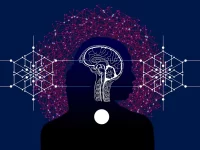Science is indisputable, empirical, objective. Or at least, it’s supposed to be.
The practice of science is methodical; designed to produce universally accurate knowledge. Ironically, there is a long and nuanced history of the cross-cultural approaches to science and knowledge. Science is, in other words, uniquely plagued in epistemology.
Science does not have to be so divisive, but the Western hemisphere — the United States in particular — doesn’t seem to agree. In this part of the world, science is so often weaponized as a tool for political polarization, framed as an innate opposite of the word belief. Fueled by ethnocentrism, warped cultural definitions mark the difference between science and belief.
Perhaps the best example of this is medicine. The Western medical system is essentially founded upon modern science: Clinical practices are unquestioned and immensely authoritative. There is no treatment that is not backed by rigorous trial, and rarely is a diagnosis made that is not understood in the context of biological science. The dichotomy between science and culture is severe, leaving little room for interpretation.
“As a progressive culture, we — the ‘West’ — are aware of beliefs in other healing practices, but often dismiss them as primeval myths.”
As a progressive culture, we — the “West” — are aware of beliefs in other healing practices, but often dismiss them as primeval myths. These beliefs do not fit tidily into our universal science, and therefore they must be false. Rarely now does anyone devote thoughtful consideration to the significance of external practices, like traditional religious healing of South America or the East.
Anthropologist Byron J. Good offers some insight into the potential origin of this phenomenon. He’s notable for his discussion on the nuanced interactions between rationality, knowledge, and medicine. Good places particular emphasis on the etymology of the word belief: In the Western lens, knowledge implies science and factuality. Conversely, belief implies a choice of faith in the unseen or unknown, something easily disregarded as fantastical or simply wrong. Good argues that our use of the word belief has destroyed our comprehension of and relationship with cultural knowledge: Information that might disagree with the scientific method, such as the combination of spirituality and medicine.
Belief used to signify a strong, entire devotion to something. Belief in science, then, could be described as a relentless pursuit of knowledge. To say that cultures believed in certain practices used to describe a commitment to their science. For example, Mayan Curanderos, traditional faith healers in South America, heal with prayer and the medicinal properties of plants as two equally important tools of medicine. While we might somewhat understand the use of plants for their physical properties, we still say they believe in plants and the power of their Spirits, and in doing so undermine the validity of the practice. The meaning of belief has gradually shifted towards a statement of truth and plausibility, one that leads us to disregard the very real and observable outcomes of such practices.
It implies that tradition takes precedence over logic: that the Mayans practice herbal medicine because they simply imagine that it is effective. We demean the approaches of outside cultures to science and medicine by referring to them as “belief systems” because we cannot see how they can be real and effective medical practices in the context of our science. How can Spirits — who simply do not exist to those outside the culture — have a tangible impact on an individual’s health? And yet, they do: One South American woman, “possessed by an evil spirit,” was healed with herbal tea and vigilant prayer, Rosita Arvigo describes in her book Sastun. After weeks of incurable illness, this was all it took for her to return to normal.
“Ethnocentrism has subtly propelled us towards swiftly dismissing outside approaches that offend our ‘objective’ science.”
Ethnocentrism has subtly propelled us towards swiftly dismissing outside approaches that offend our “objective” science, indicating that it is perhaps not so universal at all. Whether intentional or not, the language used by the Western world makes clear an insularity against knowledge falling outside our beloved definition of science. The need for a more flexible integration of cross-cultural perspectives is increasingly clear in the context of modern science. However, there is no lab protocol for approaching knowledge that doesn’t fit neatly within our predetermined schemas. If we wish to pursue true knowledge and expand our understanding of the natural world, we must mend the gap between our acceptance of knowledge that comes from science and evasion of knowledge resulting from belief.
- Medicine, rationality, and experience (1993). DOI: 10.1017/ CBO9780511811029.003
- Sastun: My Apprenticeship with a Maya Healer (1994). ISBN: 978-0-06-250259-9






